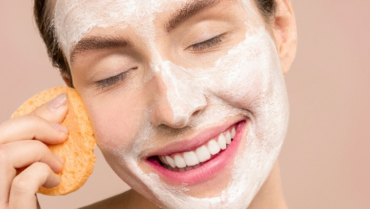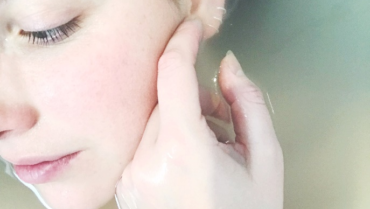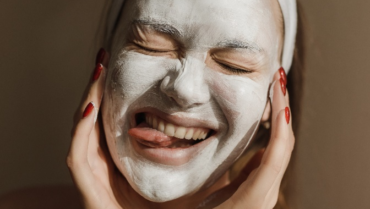Do you think you know a lot about skin care? If your source of information has been the untrusted online sources and/or old wives’ tales, you might be surprised to know how much of your skincare knowledge is false. Unfortunately, there is plenty of misinformation about skin care out there. And your odds of achieving truly healthy skin depend upon your capability to separate fact from fiction.
To help you do that and start your journey towards achieving healthy, clear and glowing skin, here we’re highlighting some of the most common skincare myths and the truth behind them. It’s high time we all should stop believing in them.
Myth # 1 – The more water you drink, the healthier your skin will get
Fact – While drinking an adequate amount of water is essential to keeping your body hydrated and also benefit overall health, it doesn’t have a direct connection with skin health and hydration. There’s no scientific evidence to back the claim that drinking more water keeps the skin hydrated and improve its health, quality, and appearance.
The key to getting rid of dry, flaky skin and preventing premature aging lies in hydrating your skin topically with the right moisturizer. Look for ingredients that not only hydrate, but also help retain moisture in the skin. Hyaluronic acid does the job really well.
Myth # 2 – Acne is the result of poor skin hygiene
Fact – If you have acne or ever had it, you must have been told at some point during your battle against the skin condition that you need to wash or cleanse your face more often. Acne is commonly associated with poor skin hygiene, particularly with not washing the face enough. However, this is not true. If anything, washing you face too often will only exacerbate the issue and will make your acne worse by drying out and irritating the skin.
Having said that, hygiene is important for the overall health of your skin. Cleanse your face just enough to clear and prevent the accumulation of dead skin cells and sebum in the pores, as it can lead to bacterial growth, which then can cause pimples. For treating acne, you need to look at the bigger picture and consider factors, like hormonal imbalance, genetics, and lifestyle.
Myth # 3 – “Natural” products/ingredients are better for skin than synthetic ones
Fact – “Natural” doesn’t always mean better or safe and synthetic or chemical-based products aren’t always bad for the skin. Not only certain natural elements can be unsafe, they can also be toxic. On the flip side, many synthetic or chemical-based skincare products can be highly beneficial for certain issues.
The key to choosing the right skincare products or ingredients lies in identifying your issues, skin type, and the results you’re looking to achieve. It is only when you take a holistic approach that you can find the best products for your specific needs.
The best way to finding the right ingredients or products is to consult a skincare expert.
Myth # 4 – Makeup products that include SPF eliminate the need for sunscreen
Fact – Cosmetics with SPF may seem ideal, but they are not alternative for sunscreen. The reason? You don’t use makeup products in enough quantity required to achieve sun protection as mentioned on the label. For that, you need to apply about 2 mg of the product per cm2 of the skin surface. You don’t apply that much makeup on your skin, do you? Also, sunscreen needs to be reapplied every 2 to 3 hours. You can’t keep on adding layers of foundation every few hours, throughout the day (unless you’re a celebrity with your personal makeup artist accompanying you everywhere).
Makeup products that contain SPF may offer a little extra protection. They can also come in handy during the times when you forget to take sunscreen along or do not have one that can be applied on top of your makeup.
To sum up, cosmetics with SPF are not completely useless. However, they are not alternative to your standard sunscreen either.
Myth # 5 – Hot water opens up skin pores, offering a better cleanse
Fact – A surprisingly huge majority of people believe in this piece of information. If you are one of them, get ready for one of your life’s biggest reveal. Pores are not temperature sensitive! In fact, they do not even open or close because they do not have muscles or muscular attachments. The size of your pores is determined by your genetics.
Having said that, certain factors can make your pores appear larger or smaller by dilating or constricting them. Hot water or steam stimulates the oil glands in the skin and also cause its outermost layer to swell. The accumulation of oil, dust, debris, and dead skin cells in the pores can also make them puffy or swell. All these factors can make your pores look open.
Similarly, cold water reduces the production of oil and tightens the skin for the time being, which then make the pores look smaller. In reality, pores do not open or close.
Myth # 6 – People with oily skin do not need moisturizer
Fact – Everyone needs a moisturizer. If anything people with oily skin should refrain from, it’s the oil-based moisturizer. Their best bet is to go for a lightweight, water-based moisturizer, with hydrating ingredients like hyaluronic acid.
Harsh cleanses, pollution, sun rays, and other external factors can damage the skin’s natural moisture barrier, leading to moisture loss. If the moisture balance is not restored, the oil glands start producing more sebum to make up for the lost moisture, which makes the skin even oilier. Keeping the skin hydrated with the right moisturizer can help keep oil production under control.
Skincare industry is rife with myths and misconceptions. But, it’s about time people should learn to discern fact from fiction and stop falling prey to wrong information and marketing ploys. Being exposed to all kinds of environmental stressors, your skin already bears a lot; don’t over-stress it with too much experimentation. Educate yourself about skincare or consult an expert to devise the right skincare regimen and choose the right products. You can also refer to my blog How to Create the Perfect Daily Skincare Routine to get started!





Add Comment